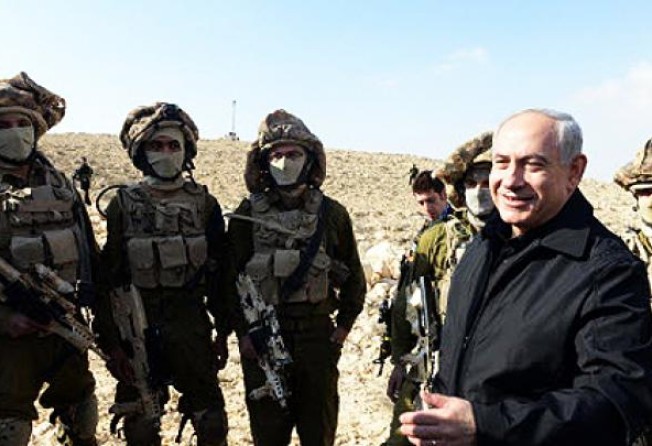Israel arresting Palestinians to pre-empt uprising

Israel plans to step up arrests of suspected militants in the occupied West Bank to prevent a rising tide of low-intensity conflict and civil unrest from turning into an uprising, security sources say.
“There is a certain [Palestinian] awakening,” one source said.
“As a consequence a decision was taken within the security establishment to increase intelligence activity and arrests among members of Hamas or activists against Israel,” he added. “It started in the past few days and will increase.”
Recent events, however, suggest that such a policy could backfire.
On Tuesday, undercover Israeli troops attempting to arrest a suspected Islamic Jihad militant were pelted with rocks by an angry crowd.
The squad made their arrest, but Palestinian security sources said dozens were lightly injured when soldiers fired rubber bullets, live rounds and tear gas at their attackers.
Israeli public radio’s military affairs reporter quoted military sources on Wednesday as saying the arrest operation was routine, but the Palestinian response was anything but so.
“What is exceptional is the grave disturbances,” she quoted her sources as saying. “An operation like this would not in the past have brought disturbances of this kind.”
“There is a certain rise in disturbances in the territories but talk of a third intifada is premature,” she added.
Earlier this month, troops in a southern West bank village were forced to abort an attempt to arrest a Palestinian policeman suspected of militant activity when crowds of local residents pelted them with rocks.
They seized the man later at a military checkpoint near Hebron.
The Palestinians have twice risen up against their Israeli occupiers in so-called intifadas [uprisings] – in December 1987 and September 2000.
But neither movement succeeded in ending the Israeli occupation of the West Bank that began in 1967. Now, with direct talks between Israel and the Palestinians on hold since September 2010, observers have raised the spectre of a third uprising breaking out.
Ghassan Khatib, a veteran of the first intifada, who later became a Palestinian cabinet minister and now teaches at the West Bank’s Birzeit University, does not see a guiding hand in the current round of clashes.
He considers as “spontaneous” the daily confrontations between Palestinian farmers and Jewish settlers, the hurling of rocks and petrol bombs at Israeli motorists in Palestinian areas and the clashes with troops.
“I don’t think that it can be connected to any specific event; it’s been building up gradually,” he said.
“I think it’s a result of the dangerous combination of a complete absence of any political horizon together with serious economic and financial crisis that is leading to increased unemployment and poverty,” he added, noting an increase in settlement activity.
“In my view the situation is not sustainable,” he said.
Israel’s Shin Bet domestic security service tied an upswing in clashes to November’s eight-day battle between Israel and Palestinian militants in the Gaza Strip.
“In response to the operation, Jerusalem and the [West Bank} also saw an increase in the level of violence,” Shin Bet said in its monthly summary for November.
It recorded 122 Palestinian attacks on Israelis in the West Bank, compared with 39 in October, and 44 incidents in Jerusalem, up from 31 the month before.
Israeli police spokesman Micky Rosenfeld said Palestinian youngsters seemed to be heavily involved in the unrest, which some Israeli media are already calling “a mini-intifada.”
“In general there’s been an increase in the number of incidents that have taken place, stone-throwing incidents as well as Molotov cocktails on the main highways,” he told AFP.
“The majority of incidents take place in the morning when Palestinian children are on their way to school and in the afternoon when Palestinian children are returning from school,” he said.